I fell in love with the works of novelist Anne Rice a few years ago when I took my first Independent Study course in horror fiction. The previous summer I had read Stephen King's
The Shining and recognized in the genre the incredible potential for stories about redemption, a theme very strong in Rice's work. Her latest novel,
Christ the Lord: Out of Egypt, feels like the culmination of the long and frightening journey I began when I began reading Rice's Vampire Chronicles.
My senior thesis paper was titled "Even the Damned Can Learn: The Moral Transformation of the Vampire Lestat." In it I traced Lestat's moral development throughout Rice's epic series leading from his skepticism to, I predicted, his ultimate redemption. Another student was writing a philosophy paper on the sublime in which he was attempting to show how monsters, specifically the vampires of Rice's Chronicles, are beyond morality. One complication in our writing, however, was that the series was not finished; in fact, the final book was released a month before our paper's were due. I was thrilled when I read Lestat's opening line: "I want to be a saint." Throughout the novel, Lestat seeks the redemption and love that he found after an encounter with the incarnate God in
Memnoch the Devil, and the novel ends with an act of unselfish love, something Lestat would have been incapable of in previous novels. I was able to finish the paper as I had planned; the other student abandoned his.
Lestat's development has often paralleled Rice's own spiritual journey. She wrote
Interview with the Vampire after leaving the Catholic faith she was raised in. "The novel reflected my guilt and my misery in being cut off from God and from salvation," says Rice, "my being lost in a world without light." While Rice's own feelings are expressed by Louis in
Interview, she speaks through Lestat throughout the rest of the series. "When I wrote the first book, I was Louis," says Rice. "When I wrote the second one, I was Lestat."
The Vampire Lestat reveals Lestat as a being lost in world he doesn't understand, without direction and without hope, but rather than become a nihilist, Lestat creates a morality based on aesthetics.
In
Tale of the Body Thief and
Memnoch the Devil, Lestat encounters nuns, devils, and even God incarnate, all of whom challenge what he has always believed about the world. At the end of
Memnoch, Lestat refuses to be the Devil's assistant, but his experiences have so shattered him that he becomes catatonic for the next few novels.
When Rice wrote Interview, she did not believe in God. When she wrote
Memnoch, she was not sure, just as Lestat was unsure whether what Memnoch was showing him was real or some sort of manipulation; the interpretation is left open. But at the conclusion of the series, Rice said, "I believe there is a God."
In response to this newly regained belief, Rice returned to the Catholic Church. "My return to the Catholic Church was a very emotional one," she said. "It happened in 1998 after 30 years of being away. It was gradual. I was observing people around me here in New Orleans and some Catholics. I was back in the milieu where Catholicism was a reality rather than something eccentric." The catalyst for Rice's return was her desire for communion, a desire no doubt felt as she wrote Memnoch. "I wanted to receive the Lord," Rice says, "and I believed that the miracle took place when the priest said the words 'this is my body; this is my blood.' And I wanted to partake again, so I went back to the church."
Rice wrote
Blood Canticle, the conclusion to the Vampire Chronicles, after this return to faith. In this novel, Lestat declares his desire to be a saint and says, "I want to save souls by the millions. I want to do good far and wide. I want to fight evil!" Rice herself has made a similar profession, declaring that now she writes only for God, and having concluded both her series of vampires and witches, Rice is working on a trilogy about the life of Christ.
The first novel,
Christ the Lord: Out of Egypt, is the first-person account of the life of the seven-year-old Jesus. Raised in a Jewish ghetto in Alexandria, Jesus studies under the Jewish philosopher Philo until Joseph, his mother's husband and patriarch of quite a large extended family, declares that they will return to Nazareth. Through the eyes of this first century Jewish boy, readers see the violent tension that existed at the time. On their way home, the family stops in Jerusalem to celebrate Passover at the temple, but Roman soldiers are quelling an uprising, and the boy Jesus sees his countrymen slain by their oppressors. He overhears his family and the men of Israel complaining about Herod Archelaus, whom the Romans have set up as King of the Jews, and Caesar, who has declared himself the Son of God.
While trying to make sense of these issues of cultural importance, Jesus also begins to learn about his own history. His mother warns him that they will face ridicule at home, and when he first visits the synagogue, he is almost denied entry. When he asks his family why they had to go to Egypt, they all become mysteriously silent and afraid.
Rice has always devoted herself to historical accuracy in her novels, and
Christ the Lord is no exception. Rice read skeptics and theologians and every translation of the Bible she could find. I was especially excited to read that she studied extensively the works of N.T. Wright, another of my favorite authors. "Wright is one of the most brilliant writers I've ever read," says Rice, "and his generosity in embracing the skeptics and commenting on their arguments is an inspiration. His faith is immense and his knowledge vast."
Rice says that Wright's latest tome,
The Resurrection of the Son of God, "answers the question that has haunted me all of my life. Christianity achieved what it did... because Jesus rose from the dead." Rice says, "It was the fact of the resurrection that sent the apostles out into the world with the force necessary to create Christianity, Nothing else would have done it but that."
This revelation led Rice to write the novel as she did, to capture in fiction the Jesus of the Gospels. "Anybody could write about a liberal Jesus, a married Jesus, a gay Jesus, a Jesus who was a rebel," Rice says. "The true challenge was... to take the Jesus of the Gospels, and try to get inside him and imagine what he felt."
Not that Rice is attempting to be objective. She embraces her tradition, and her Catholic beliefs are evident in Mary's perpetual virginity, with James as the son of Joseph from a previous marriage and the rest of Jesus' brothers interpreted as cousins. Rice also includes apocryphal myths about Jesus, such as killing a bully and bringing him back to life and creating pigeons out of clay which then become real. "They were fanciful, some of them humorous, extreme to be sure, but they had lived on into the Middle Ages, and beyond. I couldn't get these legends out of my mind" Rice says. "Ultimately, I chose to embrace this material.... I felt there was a deep truth in it, and I wanted to preserve that truth as it spoke to me." The canon is always the authority, however. "I am certainly trying to be true to Paul when he said our Lord emptied himself for us," Rice says, "in that my character has emptied himself of his divine awareness in order to suffer as a human being."
Rice offers her book to all Christians - "to the fundamentalists, to the Roman Catholics, to the most liberal Christians in the hope that my embrace of more conservative doctrines will have some coherence for them in the here and now of the book. I offer it to scholars in the hope that they will perhaps enjoy seeing the evidence of the research that's gone into it, and of course I offer it to those whom I so greatly admire who have been my teachers though I've never met them and probably never will."
Rice also offers the book to those "who know nothing of Jesus Christ in the hope that [they] will see him in these pages in some form. I offer this novel with love to my readers who've followed me through one strange turn after another in the hope that Jesus will be as real to you as any other character I've launched into the world we now share."
Whether you are new to Rice's works or a longtime reader, whether you're a Jesus Freak or an agnostic, anyone who enjoys a well-written story with a sympathetic and human protagonist will enjoy
Christ the Lord: Out of Egypt.

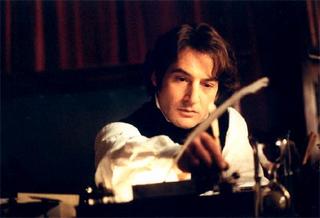
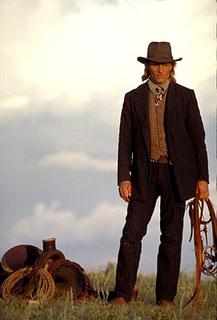
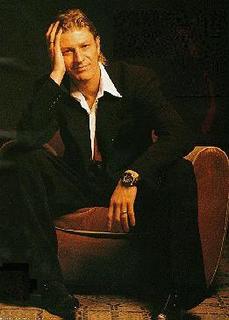

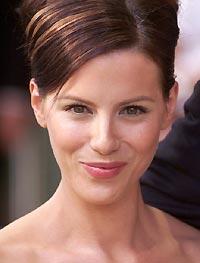
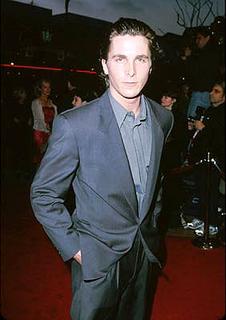











 My choice for Lestat is
My choice for Lestat is 